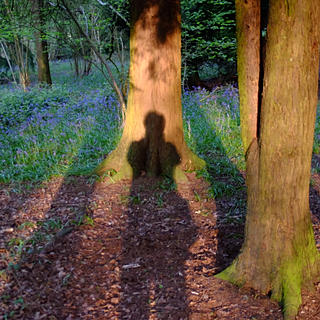After Dylan Thomas
- PCWhitehouse
- Feb 22, 2021
- 2 min read
Updated: Mar 9, 2021
I recently happened across a 1966 edition of Dylan Thomas' selected letters, with a rather lovely dedication to a retiring headteacher pasted onto the clapboard slip. I've always enjoyed Thomas' poetry, and his radio play Under Milk Wood is joyous plunge into Anglo-Welsh that never seems to age or lose any of its drunken fire and unpretentious beauty. I've an old copy that has travelled with me through every house move and has a place on shelf above me desk. His letters are similarly indulgent, especially those written when he was an ambitious eighteen-year-old trying to make a name (god, if I could write as well as Thomas did at eighteen!). In one letter advising a close friend on the necessity of writing, he says:
Rush into the sea of yourself
Like a young dog
As I read this riding the tram to work, I swear I could see him, walking the Gower, where he spent a lonely night trapped on The Worm after falling asleep on the boggy spit as the tide turned. I see him in that oversized brown coat of his, much too big in the shoulders, a fraternal gift perhaps, handed across a tavern table with beery smiles in the Mermaid Inn. Rushing into the surf with the joyful abandon of a young dog has a certain truth to it, as well as a premature melancholy, as if he sensed how rarely we get to experience such things, if at all, once we realise how quickly youth has slipped into the routines of adulthood.
According to the editor’s notes, Thomas would labour over his letter as he would a poem, pursuing them through multiple drafts on thin paper, only to then try and pass them off as a 3am stream of consciousness. In a long letter to Pamela Hansford Johnson, which he claims to have written while sitting in the bath - the waters lapping at his personal shores – he gives us this, aged barely nineteen:
There is no necessity for the artist to do anything. There is no necessity. He is a law unto himself, and his greatness or smallness rises or falls by that. He has only one limitation, and that is the widest of all: the limitation of form. Poetry finds its own form; form should never be superimposed; the structure should rise out of the words and the expression of them. I do not want to express only what other people have felt; I want to rip something away and show what they have never seen. Because of the twist in myself I will never be a very good poet: only treading the first waves, putting my hands in deeper and then taking them out again. But even that, to me, is better than the building of perfectly ornate structures in the sand. To change the image, one is a brief adventure in the wilderness, and the other a little gallop on an ordered plot of land.
September 1933.










Comments